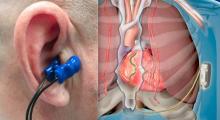June 14, 2019 – An expert consensus statement provides recommendations for optimizing the financial operations of the cardiovascular catheterization laboratory (CCL) while providing cutting-edge patient care. It is intended for any physician, administrator, or CCL staff member who desires a fundamental understanding of finances and economics of CCLs in the U.S.
© Copyright Wainscot Media. All Rights Reserved.
Subscribe Now


